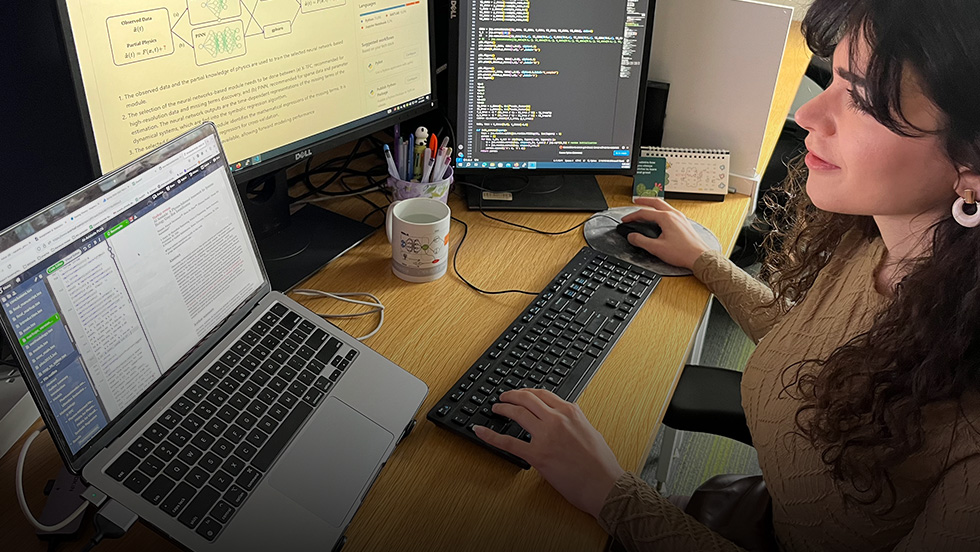
When biomedical engineering Ph.D. student Nazanin Ahmadi first came to Brown, she knew she would be working on Physics-Informed Neural Networks (PINNs) with her advisor — Dr. George Karniadakis, Professor of Applied Mathematics and Engineering.
She didn’t know she would be working in Quantitative Systems biology and Pharmacometrics—fields that require a background in chemistry and biology, subjects Ahmadi hadn’t studied since her early high school years.
Before Brown, Ahmadi had never been to the United States. In high school, she chose her majors as physics and mathematics. “I didn’t take any biology courses at a university level,” said Ahmadi. Now, though, she has become an interdisciplinarian. She’s taken courses in public health, applied mathematics, biology, engineering, and computer science.
She’s one of the first authors on AI-Aristotle, an AI system that is helping researchers find the mathematical rules that govern physical and biological systems.
“I knew that I would work on the mathematical part of Neural Networks,” said Ahmadi. The idea for AI-Aristotle was prompted by the fact that, “in most cases, we don’t know the exact governing physics” behind biological and physical processes. “We know that such processes happen in the body, but we don’t know how,” she said.
Researchers often only have partial information about the equations that govern systems and only a limited amount of “real world” data, said Ahmadi. “The question here is ‘how do we blend our understanding of biophysics and interactions within the system into the work of a neural network?’”
Neural networks are AI systems that approximate outputs or solutions to patterns and equations based on the information developers feed them. The developers of AI-Aristotle took known scientific equations and fed them to AI-Aristotle with some missing pieces. Then, they would observe if AI-Aristotle could accurately solve the equations and find the value of parameters as well as missing terms in the mathematical model. This process helped researchers ensure that the outputs generated by AI-Aristotle were accurate and consistent with known physics.
